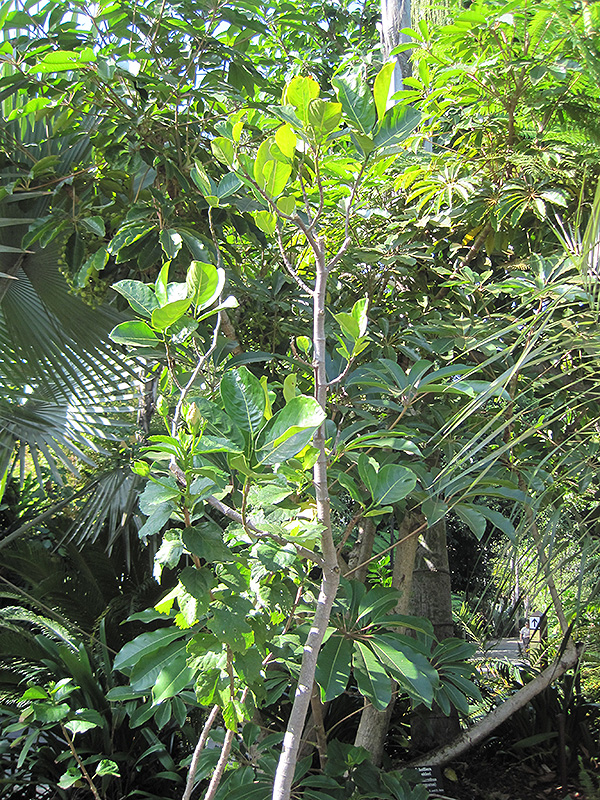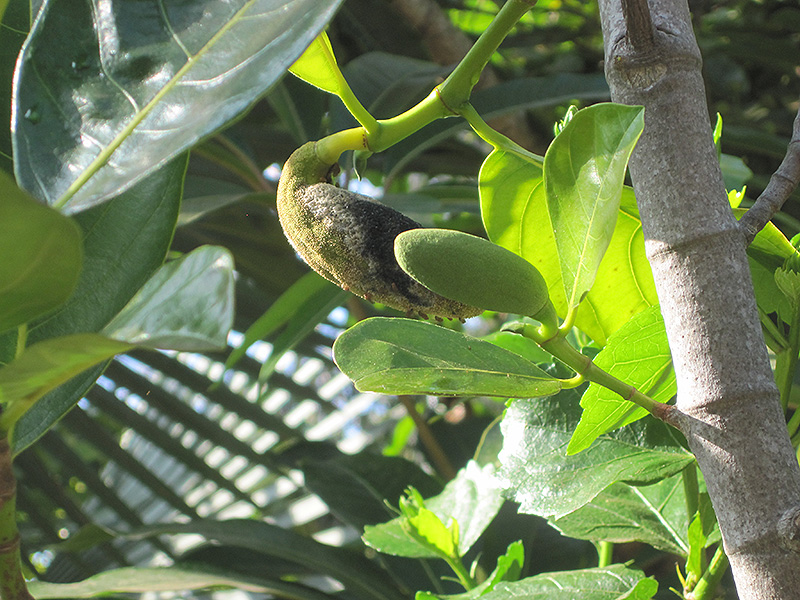Height: 50 feet
Spread: 30 feet
Sunlight:
![]()
Hardiness Zone: 10a
Other Names: Jack Tree, Fenne, Jakfruit
Description:
A tropical to sub-tropical evergreen tree that will grow large and straight-trunked; large pale green fruits ripen to greenish-yellow or brown and grow on short stems from the branches and trunk; a stately tree that is fast growing; frost tender
Edible Qualities
Jackfruit is a large tree that is commonly grown for its edible qualities, although it does have ornamental merits as well. It produces large chartreuse oval fruit with yellow flesh which are typically harvested when mature. The fruit will often fade to brown over time. The fruits have a sweet taste with a fleshy texture and a distinctive fragrance.
The fruit are most often used in the following ways:
- Fresh Eating
- Cooking
- Juice-Making
Features & Attributes
Jackfruit has attractive dark green foliage with pointy light green spines which emerges light green in spring on a tree with an upright spreading habit of growth. The glossy oval leaves are highly ornamental and remain dark green throughout the winter. The fruits are showy chartreuse pods which fade to brown over time, which are carried in abundance from late spring to early fall. The smooth gray bark adds an interesting dimension to the landscape.
This is an evergreen tree with an upright spreading habit of growth. Its average texture blends into the landscape, but can be balanced by one or two finer or coarser trees or shrubs for an effective composition. This plant will require occasional maintenance and upkeep, and can be pruned at anytime. It is a good choice for attracting birds and butterflies to your yard. It has no significant negative characteristics.
Aside from its primary use as an edible, Jackfruit is sutiable for the following landscape applications;
- Accent
- Shade
- Orchard/Edible Landscaping
Planting & Growing
Jackfruit will grow to be about 50 feet tall at maturity, with a spread of 30 feet. It has a low canopy with a typical clearance of 4 feet from the ground, and should not be planted underneath power lines. It grows at a fast rate, and under ideal conditions can be expected to live for 60 years or more. This is a self-pollinating variety, so it doesn't require a second plant nearby to set fruit.
This tree is quite ornamental as well as edible, and is as much at home in a landscape or flower garden as it is in a designated edibles garden. It should only be grown in full sunlight. It prefers to grow in average to moist conditions, and shouldn't be allowed to dry out. It is very fussy about its soil conditions and must have rich, acidic soils to ensure success, and is subject to chlorosis (yellowing) of the foliage in alkaline soils. It is somewhat tolerant of urban pollution. This species is not originally from North America..
A NetPS Plant Finder tool



